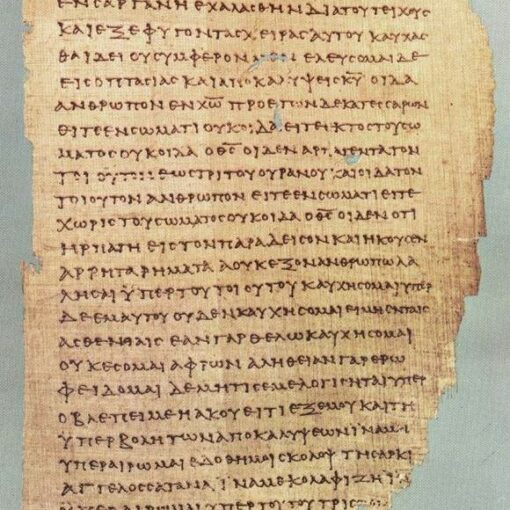Bill Gaither wrote a song (anyone who has listened to me speak for any length of time has heard that phrase once or twice before) called “The King Is Coming.” Written more than 30 years ago, the piece describes in soaring lyrics as well as orchestration what it will be like when Jesus, the King of kings and the Lord of lords, returns again to claim His own. Though no man knows the day nor the hour when that epic event will occur, when it does there will be no denying the supremacy of Christ, for every knee shall bow and every tongue confess that He is Lord to the glory of God the Father (Philippians 2:10-11). A couple of weeks ago we looked at Mark 11:1-18 which described the “first” triumphal coming of the King on Palm Sunday of Passion Week, a day when people two thousand years ago welcomed Jesus in the demeanor of a king at the first of a week that would culminate with His crucifixion, death, burial, and resurrection. In the newsletter this month we will review the most important points from that message on the opening verses of Mark 11.
The King Disarms The Devil…Back in my childhood I was “afflicted with the privilege” of watching Westerns. I say “afflicted” because with the exception of John Wayne movies, I didn’t enjoy them much (if anyone doesn’t like “The Duke”, the altars are open for repentance every Wednesday and Sunday!). I say “privilege” because Lord knows there are a lot worse things that one could watch on television (and it’s getting worse everyday!). One thing I recall from those films were scenes where some group of cowboys would be gathered around a fenced-in area where a horse who had never been ridden before was going to be broken. Invariably, there was one young whipper-snapper (a word anyone who’s watched Westerns would know) who thought he could break the horse. He usually ended up with a hard beating on the backside as the untame creature threw him soaring into the air for a less than graceful landing…Wild animals are hard to break. Yet, when Jesus rode into Jerusalem on the back of a donkey (thus fulfilling the Old Testament prophecy of Zechariah 9:9), Scripture makes it a point to tell us that it was an animal upon which no one had ever yet sat. Why did Jesus not have an ungraceful landing on the backside? Because the Lord of eternity, the God without Whom nothing was made that was made (John 1:3), the One who spoke peace to the wind and the waves and they obeyed (Mark 4:39), has no issue at all with instantly and totally taming a roaring, raging, wild beast…Though Scripture does not explicitly say so, there are many commentators who believe that the wild donkey represents the devil—a strong and terrible foe who has ravaged many a man, woman, and child and who is more powerful and cunning than any person could withstand in their own strength. Yet, the King came and showed that there is no comparison between Him and the evil one, and that all of those who put their trust and faith in Christ can partake of the same victory, overcoming the devil through the blood of the Lamb and the word of their testimony (Rev. 12:11).
The King Deserves Praise…I didn’t know much about liberal theology (at least extreme liberal theology) until I went to seminary. The school I went to was conservative, but they did introduce me to the doctrines that some claiming to represent Christendom were propagating. One of the groups I was exposed to was The Jesus Seminar. With a name like that, what could be bad? (Our Wednesday night series entitled “Truth or Trick” sheds some light on why things aren’t always as they seem.) The “scholars” who belong to this group basically assert that Jesus was a good man, great teacher, and powerful prophet whose death on the cross shows humanity the ultimate example of love. However, they don’t believe that He was God or that His death on the cross was actually necessary to atone for the sins of man. They teach that Jesus never thought of Himself as God but was “made” Divine through the subsequent teachings of the Apostle Paul and others. Some of their Seminar meetings consist of members sitting around a table, going over the statements of Jesus in the gospels, and casting votes by way of different colored marbles on whether or not they believe it was something Jesus actually said! Put aside for the moment the foolishness and hubris of believing that we judge Scripture versus Scripture judging us, but anyone who thinks they have the ability to look at the reported words of someone 2000 years ago and determine what they did and did not say is probably closer to having lost their marbles than they should be to voting with them…Jesus’ Triumphal Entry into Jerusalem on the back of a donkey was met by adoring, worshipping crowds. Luke’s account tells us that the religious leaders tried to get Jesus to hush the praise of the people because it was not right for a man to receive such adoration. Yet Christ responded by saying that if the crowds did not praise Him, the very rocks would cry out! (Luke 19:39-40) Far from denying His divinity, Jesus asserted it by receiving praise! (see also John 20:26-29). The King deserves praise, honor, and worship! Read the book of Revelation and you will see that praise is the enterprise in which God’s people will be engaged in for all eternity!
The King Demands Fruitfulness…The day after Jesus’ entry into Jerusalem He became hungry while He and the disciples were walking from Bethany. He noticed a fig tree. Now it was not yet the season for fig trees to be bearing fruit, but the leaves that this particularly tree was showing was a sign that it should have had figs that day. Yet, when Jesus went to the tree, He discovered that it was barren of fruit. Christ cursed the tree and said that no one would ever eat of it again. (Indeed, Jesus’ prophecy towards the fig tree came true for the next day the disciples noticed that it had withered from the roots up!). The lesson of the fig tree is this. Jesus was dealing with religious leaders (who would eventually plot to crucify Him) who loved the chief seats in the synagogues (churches), who enjoyed trumpeting their financial offerings, who shouted their prayers to be heard by men, and who dressed gloomily to make sure everyone knew when they were fasting (Matthew 6:1ff.). Yet, these same religious leaders held their own tradition above the word of God (Mark 7:13), placed heavy burdens on people and didn’t lift a finger to help them (Matt. 23:4), judged others for the speck in their eyes without looking for the log that was in their own (Matt. 7:3), and took financial advantage of the people, even to the point of devouring the houses of widows (Matt. 23:14). They had the façade of leaves, but they did not bear the fullness of fruit, and what fruit they did bear was rotten to the core, devoid of repentance and faith…Before leaving this issue, let me quote a precious promise for true believers from the lips of Jesus as recorded in John 15:16, “You did not choose Me but I chose you, and appointed you that you would go and bear fruit, and that your fruit would remain…”
The King Despises Treachery…The second chapter of John tells us about Jesus’ first cleansing of the Temple. Christ’s ministry had just officially begun. He walked into the House of the Lord and found the religious leaders taking financial advantage of the people by charging more than they should for sacrifices. Jesus’ response was to fashion a whip, turn over the tables of the “money changers”, and chase them out of the Temple while declaring that His Father’s House should be called a House of Prayer but that those in charge had turned it into a den of thieves. Not just a place where thieves live, but where they feel comfortable. Approximately three and a half years later the thieves had come back (they always do) and again turned the House of the Lord from a place of praying to a place of preying. Mark 11:15-18 gives us the accounting of Jesus’ second cleansing of the Temple during the last week of His earthly ministry. It reads much the same as the first time He took on the money changers but makes special note of those who were selling doves. Those familiar with the Old Testament will know that the poor people were the ones who offered doves. In fact, due to their humble means, it was doves that Joseph and Mary offered when Jesus was born (Luke 2:24). The religious leaders of Christ’s day would even take advantage of the poorest of the poor! Jesus detested the treachery going on then and responded in a strong way! And I have a feeling that He despises it no less in our present day when some high profile “ministers” continually ask for the elderly and downtrodden to send in their Social Security checks and put donations on their credit cards while they themselves globetrot in their private jets and don Armani suits, all in the name of the Lord! The King Came Once! The King Will Come Again! Maranatha!



